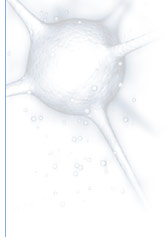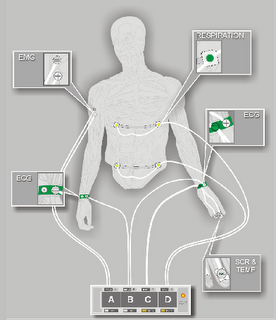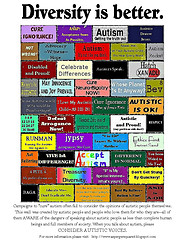 [translation = here sooner than anticipated {sub translation = senility, that is to say}]
[translation = here sooner than anticipated {sub translation = senility, that is to say}]
Oooo enough of this ‘hidden disease’ malarkey. Far too tiresome, and certainly anything but hidden. It’s all to obvious around here I’m afraid. There might be many reasonable and logical explanations for what you might observe in the confines of this, our home, but the most obvious cause is autism.
How do I mean? Well, lets start with a small example and we can compare notes. Sounds like a plan? Good.
Here are the basic ingredients. [translation = add or subtract as you deem fit. {sub translation = minus}] Take one child or the smallish variety, ideally male. [translation = lower incidence ‘female.’] Sprinkle the following substances over the said child and observe reaction. [translation = for some subjects it is best to avoid the ‘head and shoulders’ area with there is a higher incidence of receptors]

Take and eye dropper. [translation = haven’t the foggiest, please supply at your earliest convenience] Fill with blood temperature water. Drop one droplet on subject. [translation = insert earplugs prior to commencement]

Take talculm powder and drift one siftlet over the child at a height of approximately 5 feet above head. [translation = a step ladder may prove useful for this portion of the programme.]
 Thirdly, expose child to the sound of the fire alarm sensor. [translation = the soft beeping noise that the contraption emits when the batteries are low] Ensure that the device is the greatest distance possible from the said child. Do not be alarmed that you are unable to really hear the same noise yourself, until you are standing 3 feet beneath the dratted machine.
Thirdly, expose child to the sound of the fire alarm sensor. [translation = the soft beeping noise that the contraption emits when the batteries are low] Ensure that the device is the greatest distance possible from the said child. Do not be alarmed that you are unable to really hear the same noise yourself, until you are standing 3 feet beneath the dratted machine.
 Fourthly, take your favourite foodstuff. [translation = any one will do, just as long as it is universally agreed by mankind, that it is delicious] Ask subject to a] look at food. B] smell food. C] touch food [translation = not necessarily with finger, due to tactile defensiveness] D] lick food. E] taste or eat food. Let me know if you get past A].
Fourthly, take your favourite foodstuff. [translation = any one will do, just as long as it is universally agreed by mankind, that it is delicious] Ask subject to a] look at food. B] smell food. C] touch food [translation = not necessarily with finger, due to tactile defensiveness] D] lick food. E] taste or eat food. Let me know if you get past A].
Lastly, try and cuddle subject when he’s not expecting it. [translation = bandages are in the bathroom]
Advanced programme. [translation = program {N.B. not for the faint hearted.}] Repeat as above, but this time use yourself as the subject. Observe the enhanced agony of your child, as you expose yourself to the same elements. [translation = cannot put oneself in another’s shoes {sub translation - rats to the theory of mind}] [See Ref 1] If the observer of the subject reacts as follows:
“No, no, no. Doe not do dat! Agh! Agh! Agh! You will be hurted! No! No! No! I will hep you!” then you may gain some small reassurance that the theory [as set out below] is not always the case. [translation = in all situations] It is sad, as always, to observe the callous attitude of the mother. [translation = prima gravida]
Have I convinced you?
Oh! You think it’s more ‘sensory integration issues and a bit of speech delay’ huh! Or maybe you adhere to the theory that he's a wimpy little nerd who needs to 'shape up?' A valid observation as always on your part. Luckily we’re all entitled to our biased opinion. [translation = especially me]

A child with too many nerve endings? [translation = maybe just a bad wiring job]
{sub translation = whoop de doo!
/jolly good show Mr. Eye Contact}
[Ref 1] The Theory of mind from Wikepedia [thank you] According to Simon Baron-Cohen et al,[7] [ translation = I love him and all his pals really] many autistic children appear to lack a "theory of mind," which is the ability to see things from another person's perspective. This is a behavior cited as being exclusive to human beings above the age of five and possibly, to a lesser degree, to other higher primates such as adult gorillas, chimpanzees and bonobos.[citation needed] Typical 5-year-olds can usually develop insights into other people's knowledge, feelings, and intentions based on social cues (e.g., gestures and facial expressions). An autistic individual may lack these interpretation skills, leaving them unable to predict or understand other people's actions or intentions. [translation = a load of old codswallop {Sub translation = rhubarb}]
 Many moons ago my child, when I was just a wee young thing….I would sign my name in the book as I arrived at work at the bank, where I was am employee, every working day. On one strange day, I was called into the under manager’s office. [translation = always a bad sign] He displayed the ‘sign in book’ because this was in the days before the ‘clock in’ machine. [translation = or possibly something more to do with snobbery, the ‘trade’ v. ‘profession’ debate.]
Many moons ago my child, when I was just a wee young thing….I would sign my name in the book as I arrived at work at the bank, where I was am employee, every working day. On one strange day, I was called into the under manager’s office. [translation = always a bad sign] He displayed the ‘sign in book’ because this was in the days before the ‘clock in’ machine. [translation = or possibly something more to do with snobbery, the ‘trade’ v. ‘profession’ debate.] “Well McEwen!” he said in a fatherly tone. “What do you have to say about this?” He riffled the pages and pointed to my signatures. Week upon week, there is was, my own personal scribble. I sought clues. None were forthcoming.
“Well McEwen!” he said in a fatherly tone. “What do you have to say about this?” He riffled the pages and pointed to my signatures. Week upon week, there is was, my own personal scribble. I sought clues. None were forthcoming.  “Er, I’m not on time every day?’ I squeaked.
“Er, I’m not on time every day?’ I squeaked. 
 Think about it? What is it about Wednesday? I can see the evidence of my own eyes. What did you do today? How did you feel? What makes Wednesday different from Tuesday or Thursday? Is Wednesday the forgotten day? Is your battery flat?
Think about it? What is it about Wednesday? I can see the evidence of my own eyes. What did you do today? How did you feel? What makes Wednesday different from Tuesday or Thursday? Is Wednesday the forgotten day? Is your battery flat? 






